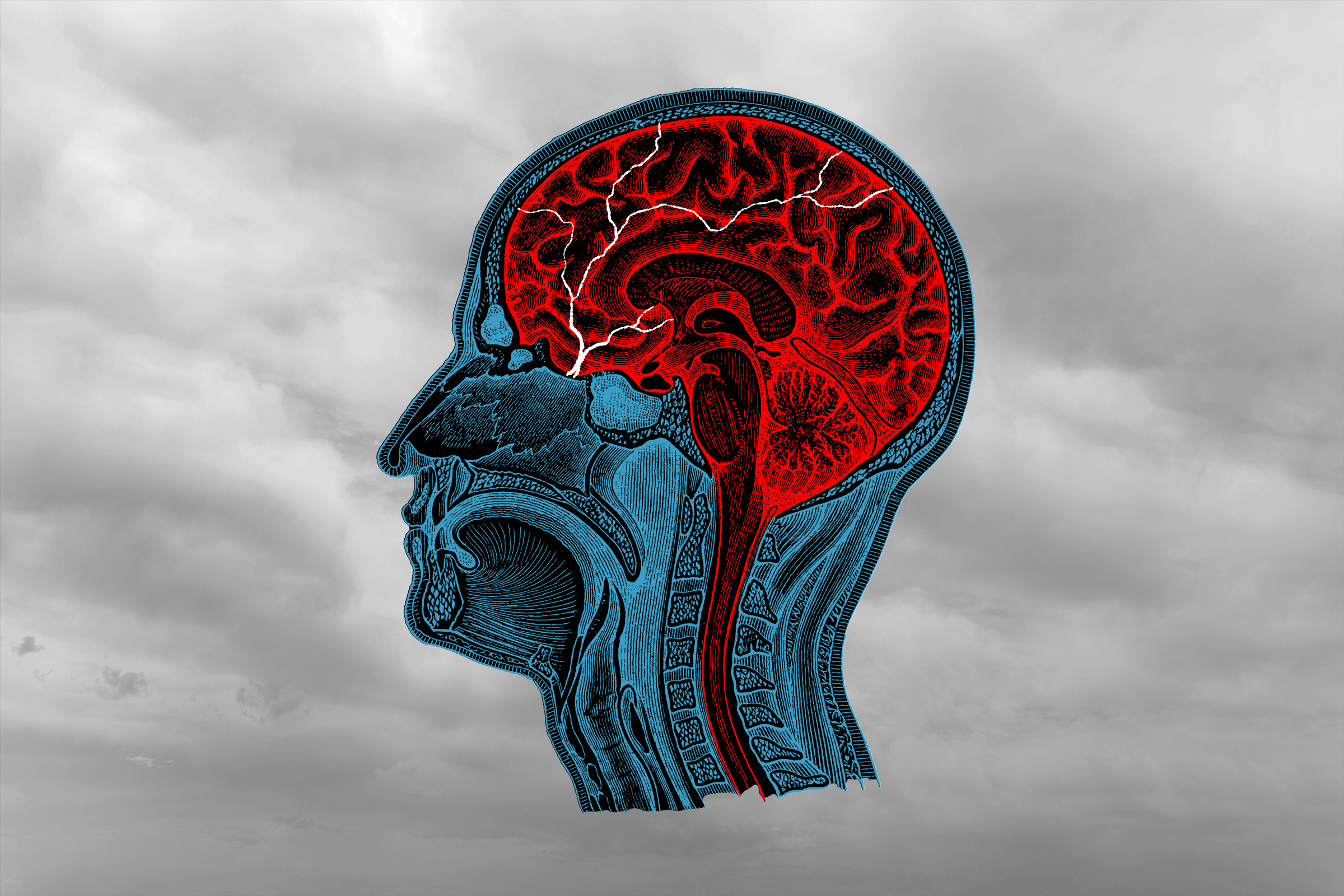[ad_1]

Alanna Santini’s friends call her the “human weather vane.” On cloudy days, the 42-year-old advertising executive from Silver Lake invariably comes down with a bad headache. It’s an experience she grew accustomed to in her home state of New York and something she was happy to escape when she moved west five years ago. But this year, as an unusually dark and stormy Los Angeles winter segued into a rainy, overcast spring, her weather-induced headaches returned with a vengeance — adding a whole new dimension to the term June gloom.
“I’ve been waking up with a headache for the past three months because it has either been raining or on the cusp of raining,” Santini said.
Seasonal headaches are a common if somewhat mysterious phenomenon (it’s important to note that migraines are a type of headache but that all headaches are not migraines). Many people who get either type of headache note that they can occur during sudden shifts in barometric pressure when the weather changes.
Such complaints have become so frequent that scientists and healthcare providers have sought to investigate and explain the correlation. So exactly how do the pervasive clouds and rain contribute to headaches and migraines?
One possible cause could be our sinuses, says Dr. David Gudis, chief of the division of rhinology and anterior skull base surgery at New York-Presbyterian/Columbia University Irving Medical Center. Barometric pressure sinusitis, otherwise known as barosinusitis, is an established medical condition in which people feel intense sinus headaches and inflammation. Gudis describes the sinuses as “compartments of little air-filled cavities, like a honeycomb,” or “an office with lots of cubicles in which each space is an air-filled compartment lined by a mucus membrane, surrounded by bony partitions.”
When sinuses are functioning normally, he says, air moves freely so that the air pressure in the nose and sinuses is the same as in one’s surrounding atmosphere. But when sinuses become blocked, usually due to inflammation, the air pressure inside your sinuses is uneven to that of your surroundings, causing pain or pressure from fluid that can’t drain or air that can’t move around freely.
Barosinusitis is fairly common on flights or when scuba-diving because the atmospheric pressure around us can’t always equalize with the air pressure inside our sinuses. (It also explains why we often feel like our ears need to pop on airplanes). Gudis likens it to the way a half-empty plastic water bottle changes shape on a flight.
“If you drink from a plastic water bottle while you’re on a flight and screw the cap on, when you land it looks like someone squeezed the bottle,” Gudis said. “According to Boyle’s law, if the temperature doesn’t change, pressure and volume are inversely correlated, which means that pressure changes in the environment can cause expansion or contraction of air-space cavities in the body.”
While these concepts may sound like long-forgotten high school physics lessons, they explain why so many of us feel uncomfortable when air pressure changes. While June gloom and other weather patterns occur much more slowly than the sudden rise and fall of air pressure on a flight, you can still feel the same kind of discomfort during correlating barometric shifts, resulting in sinus or ear pain.
For years, experts have been looking into how weather patterns can trigger headaches. Gudis cites a weather phenomenon in the Pacific Northwest known as Chinook winds, strong winds that develop from late fall to early spring. When a straight-line jet stream blows in from the Pacific Ocean.
In 2000, a study was published in Neurology that found these winds could trigger migraines. Other studies have established a link between Vitamin D (which we get naturally from sunlight) deficiency and increased tension headaches and migraines.
Dr. Diana Shadbehr, head of the Headache Clinic at Cedars-Sinai Medical Center in Los Angeles, agrees that barometric pressure can affect sinuses but says researchers haven’t yet been able to prove that weather changes are the sole cause of seasonal headaches and migraines.
“While many patients report worsening of headaches with weather changes, and there was even a research study in Japan that showed a correlation between barometric pressure changes and more headaches, it is difficult to account for all other variables that can trigger a headache such as different foods, stress and hormonal fluctuations,” she wrote via email.
When it comes to weather-induced headaches, everyone’s triggers are different; for some, Shadbehr suggests sunny days may be a trigger.
“Sunlight contains blue wavelengths of light that can trigger a migraine attack,” she said. “Photophobia can occur both in the setting of natural light and synthetic light. Additionally, sunlight exposure can cause dehydration which can also trigger a headache. Light can activate brain cells in areas of the brain that are involved in headaches.”
Whether or not your headaches are tied to the weather, there are ways to seek relief. If you don’t have any contraindications, a dose of acetaminophen or ibuprofen could do the trick. If you feel the headache might stem from your sinuses and it’s OK with your doctor, Gudis says over-the-counter decongestants such as pseudoephedrine, phenylephrine or oxymetazoline can help, as can nasal spray solutions such as fluticasone (steroid-based) or azelastine (an antihistamine). Always consult your doctor first before trying a new medicine. There’s even an app, WeatherX, designed to tip off those who suffer from barometric pressure headaches when a shift is happening.
Santini says she’s sick and tired of feeling sick and tired. Though none of us can control how our heads might respond to the pervasive pall of June gloom, we can stock up on cold and allergy meds and patiently wait for our spring suffering to come to its natural end. Santini, especially, can’t wait. Until then, she says: “Have pain pills, will travel.”
[ad_2]
Source link